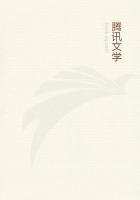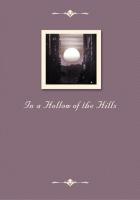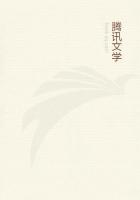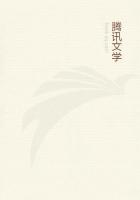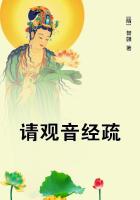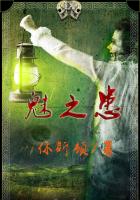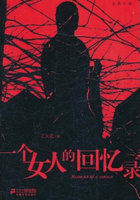The first dialogue on the ORIGIN which I wrote in the PRESS called forth a contemptuous rejoinder from (I believe) the Bishop of Wellington--(please do not mention the name, though I think that at this distance of space and time I might mention it to yourself) Ianswered it with the enclosed, which may amuse you. I assumed another character because my dialogue was in my hearing very severely criticised by two or three whose opinion I thought worth having, and I deferred to their judgment in my next. I do not think I should do so now. I fear you will be shocked at an appeal to the periodicals mentioned in my letter, but they form a very staple article of bush diet, and we used to get a good deal of superficial knowledge out of them. I feared to go in too heavy on the side of the ORIGIN, because I thought that, having said my say as well as I could, I had better now take a less impassioned tone; but I was really exceedingly angry.
Please do not trouble yourself to answer this, and believe me, Yours most sincerely, S. Butler.
This elicited a second letter from Darwin:-Down, Bromley, Kent.
October 6.
My dear Sir,--I thank you sincerely for your kind and frank letter, which has interested me greatly. What a singular and varied career you have already run. Did you keep any journal or notes in New Zealand? For it strikes me that with your rare powers of writing you might make a very interesting work descriptive of a colonist's life in New Zealand.
I return your printed letter, which you might like to keep. It has amused me, especially the part in which you criticise yourself. To appreciate the letter fully I ought to have read the bishop's letter, which seems to have been very rich.
You tell me not to answer your note, but I could not resist the wish to thank you for your letter.
With every good wish, believe me, my dear Sir, Yours sincerely, Ch. Darwin.
It is curious that in this correspondence Darwin makes no reference to the fact that he had already had in his possession a copy of Butler's dialogue and had endeavoured to induce the editor of an English periodical to reprint it. It is possible that we have not here the whole of the correspondence which passed between Darwin and Butler at this period, and this theory is supported by the fact that Butler seems to take for granted that Darwin knew all about the appearance of the original dialogue on the ORIGIN OF SPECIES in the PRESS.
Enough, however, has been given to explain the correspondence which the publication of the dialogue occasioned. I do not know what authority Butler had for supposing that Charles John Abraham, Bishop of Wellington, was the author of the article entitled "Barrel-Organs," and the "Savoyard" of the subsequent controversy. However, at that time Butler was deep in the counsels of the PRESS, and he may have received private information on the subject. Butler's own reappearance over the initials A. M. is sufficiently explained in his letter to Darwin.
It is worth observing that Butler appears in the dialogue and ensuing correspondence in a character very different from that which he was later to assume. Here we have him as an ardent supporter of Charles Darwin, and adopting a contemptuous tone with regard to the claims of Erasmus Darwin to have sown the seed which was afterwards raised to maturity by his grandson. It would be interesting to know if it was this correspondence that first turned Butler's attention seriously to the works of the older evolutionists and ultimately led to the production of EVOLUTION, OLD AND NEW, in which the indebtedness of Charles Darwin to Erasmus Darwin, Buffon and Lamarck is demonstrated with such compelling force.
DARWIN ON THE ORIGIN OF SPECIES: A Dialogue [From the Press, 20 December, 1862.]
F. So you have finished Darwin? Well, how did you like him?
C. You cannot expect me to like him. He is so hard and logical, and he treats his subject with such an intensity of dry reasoning without giving himself the loose rein for a single moment from one end of the book to the other, that I must confess I have found it a great effort to read him through.
F. But I fancy that, if you are to be candid, you will admit that the fault lies rather with yourself than with the book. Your knowledge of natural history is so superficial that you are constantly baffled by terms of which you do not understand the meaning, and in which you consequently lose all interest. I admit, however, that the book is hard and laborious reading; and, moreover, that the writer appears to have predetermined from the commencement to reject all ornament, and simply to argue from beginning to end, from point to point, till he conceived that he had made his case sufficiently clear.
C. I agree with you, and I do not like his book partly on that very account. He seems to have no eye but for the single point at which he is aiming.
F. But is not that a great virtue in a writer?
C. A great virtue, but a cold and hard one.
F. In my opinion it is a grave and wise one. Moreover, I conceive that the judicial calmness which so strongly characterises the whole book, the absence of all passion, the air of extreme and anxious caution which pervades it throughout, are rather the result of training and artificially acquired self-restraint than symptoms of a cold and unimpassioned nature; at any rate, whether the lawyer-like faculty of swearing both sides of a question and attaching the full value to both is acquired or natural in Darwin's case, you will admit that such a habit of mind is essential for any really valuable and scientific investigation.
C. I admit it. Science is all head--she has no heart at all.
F. You are right. But a man of science may be a man of other things besides science, and though he may have, and ought to have no heart during a scientific investigation, yet when he has once come to a conclusion he may be hearty enough in support of it, and in his other capacities may be of as warm a temperament as even you can desire.
C. I tell you I do not like the book.
F. May I catechise you a little upon it?

